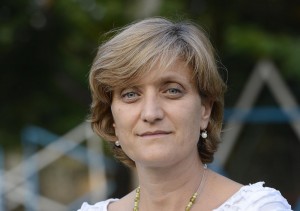European Day of Jewish Culture – Between Identity and Dialogue
This year’s European Day of Jewish Culture will involve as many as eighty-one localities from the north to the south of Italy, featuring hundreds of cultural initiatives. This increasingly-successful event, established eighteen years ago, is promoted by the Union of Italy’s Jewish Communities, in the attempt to respond to ever-widespread requests to learn more about Judaism and deepen its knowledge through major openness and participation. This event is at a time characterised by the urgent need to develop paths of dialogue involving the various religions that make up the cultural mosaic of our society.
The theme chosen for the 2017 Day, “Diaspora, identity and dialogue” bears major topical relevance, characterising all initiatives held across all thirty-five European Countries that celebrate the Day.
This theme enhances the central role of the Land of Israel, towards which the Jewish people are directed in their long exodus from Egypt, and towards which they have directed their unfaltering gaze in the millennia to come. The gaze extended to Israel characterises Jewish life in the Diaspora. The exile is a phenomenon that encompasses a large part of the Jewish people’s past. People forced to live in many different Countries as a result of the dispersion that began with the destruction of the First Temple by the Babylonians in 586 BCE, followed by the destruction of the Second Temple by the Romans and the fall of Jerusalem in 70 CE.
The Diaspora, as an existential condition, was further perpetuated throughout the course of history, notably with the infamous expulsion from Spain in 1492, and by various major and minor exiles, whereby Jews were periodically forced to flee from different Countries and regions altogether. The latest in time occurred in the 20th century with the expulsion of the Jewish population from Arab Countries after the Six Day War, an almost forgotten exodus that took place some fifty years ago, when hundreds of thousands of people were expelled from the places where they had been living for centuries.
The question arises as to where this long, painful, tormented path has brought us today. For sure, it led to the unravelling of a page of our human history, that of a people stripped of its Land for almost two-thousand years, which nonetheless succeeded in preserving its cohesion thanks to a Book, the Torah, whence derives its religious, ethical and philosophical understanding of life. Hence no longer just a Land in which to live, but an “ideal place” to yearn for and to which devote our prayers and our hopes, guided by the study of the Torah, whence stems the hefty Oral tradition of daily and religious life, in near and distant lands.
Also Italy has been deeply affected by this phenomenon. Notably the southern regions, where Jewish communities had settled in ancient times, with numerous important centres of Jewish life and study, until in the late 15th Century Spanish Queen Isabella I of Castile and King Ferdinand II of Aragon, whose kingdom extended over a large part of Southern Italy, issued the infamous edicts ordering the forced expulsion of Jews.
Only today, after a long time, is Jewish life in the far south experiencing a gradual rebirth, which we are very happy about. A few months ago, the Archdiocese of Palermo donated the building of the former Oratory of Santa Maria Delle Grazie al Sabato to the vibrant group of Jews in Palermo so that it may serve as their Synagogue. We welcomed this decision with much joy and thus decided to choose Sicily as the main venue of this year’s initiatives and Palermo as the city that will open the Day of Jewish Culture.
We previously mentioned the widespread requests to deepen the knowledge of Judaism. This is clearly perceivable, for Jewish history is an integrating part of Italian history in the south and the north of the Country alike. There is an equally evident interest on the part of many people, we will gladly accompany in their discovery of a Synagogue, a museum, or along the streets of an ancient Jewish quarter.
Such interest for us is a beautiful, significant sign, which we should bear in mind whenever we are confronted with alarming news on episodes of racism and prejudice towards migrants who land on our shores with eyes full of hope. Which atrocious difficulties do they experience whilst crossing deserts and seas? What do we transmit them of our far-dated history? How are our national and European institutions addressing this major challenge?
We are facing an epochal phenomenon that compels us to ensure the respect of the Other, that highlights the importance of learning to coexist in “diversity.” In this respect, also an event such as the Day can do its share, for we deeply believe that the dissemination of culture is the main tool to counter the cyclical resurgence of otherwise bygone forms violence and new forms of extremism. We firmly believe that contemporary society cannot do without the plurality of its voices and cultures, whose roots are in many different places.
*Noemi Di Segni is the President of the Union of Italian Jewish Communities

